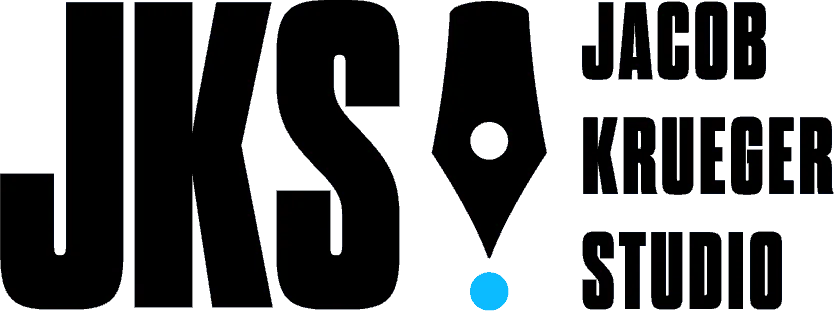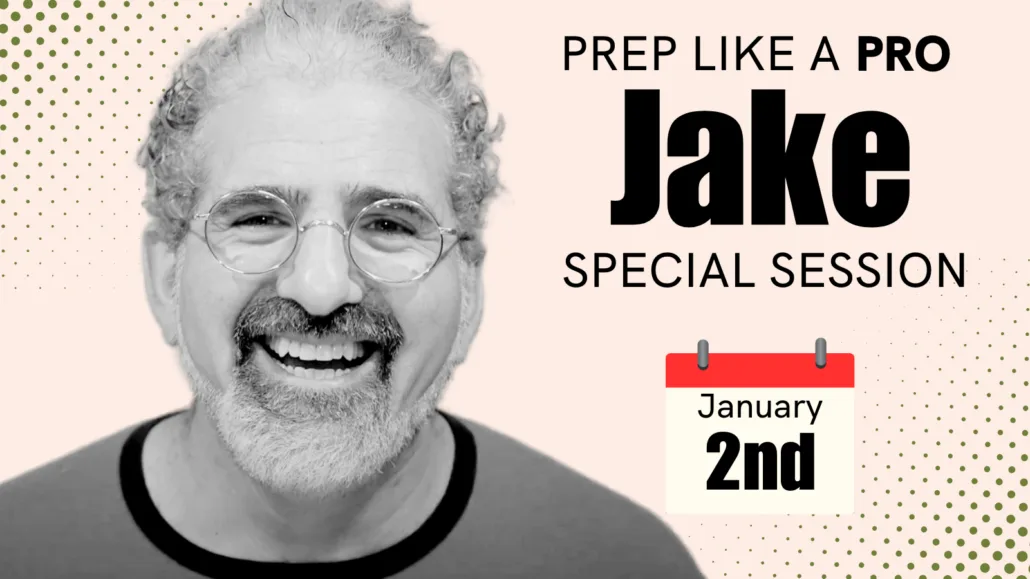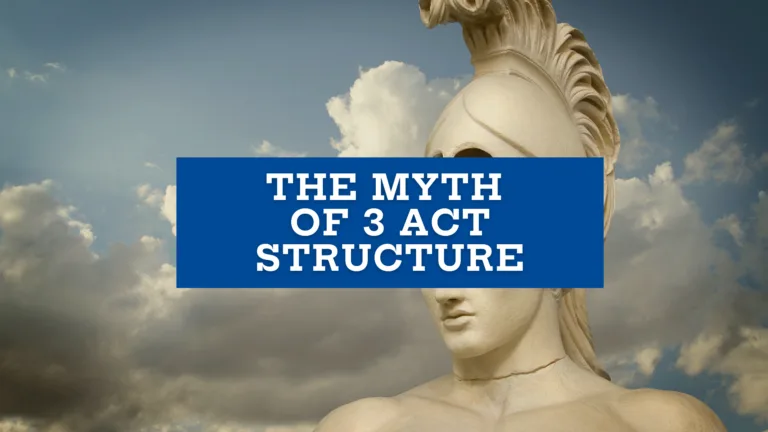This week, we’re going to be talking about Ozark, by showrunners Bill Dubuque and Mark Williams. We’re going to first analyze the pilot of Ozark and then look at the entire first season to understand how the engine of a successful series like this works and is put together.
One of the really interesting things that we don’t talk about a lot is the connection between engine and theme.
If you listen to this podcast, by now you understand the idea that engine is the thing that allows each episode to feel the same, but different. To feel like the episode before, but also to feel like something new is happening.
And if you listen to this podcast, you also understand that the first episode is a blueprint for all the episodes that are going to follow. So you understand the engine on the hook and structure level. But what we haven’t talked about yet is the way that engine works on the thematic level.
By analyzing Ozark, we can see the way that theme, hook, engine and structure come together not only to create a successful series pilot, but also an entire first season.
Theme is so important. Theme is important when you’re writing for yourself, but it’s even more important when you are writing a TV series or collaborating on a project as part of a team. When you’re writing alone, you don’t need to be able to verbalize your theme at the beginning. You can discover your theme, your theme can emerge for you, you can build your theme out of your writing by discovering what is already working in your piece.
Whereas, when you’re working on a TV show, when you’re working on a project that’s built by a team of writers, you need to have that theme out front and center. You need to be focused on theme from the very, very beginning. You need to use the theme to make sure that everyone is building the same project and that all the decisions that are getting made are all unifying the piece together.
You want to talk theme even if you are a feature film writer. You want to talk theme when you talk to a producer, when you talk to a star, when you talk to a director, you want to have those thematic conversations any time there is a collaboration.
And of course, in your own writing there is also collaboration. There is a collaboration between the conscious part of your mind, that is often unaware of the theme at the beginning, and the subconscious part of your mind that is struggling with theme– that wants to get this theme out.
If you look at the first season of Ozark, you will see the theme of secrets governing every decision the writers make.
All the way down to the internal structure of each episode, you see that theme of secrets governing literally everything in that first season. And even if you are not, as an audience member, aware of the theme, you can feel that theme giving unity to the piece.
Interestingly, if you look at Seasons 2 & 3 of Ozark, while they are still quite good, when the writers lose track of that theme of secrets, you can feel the cohesion of the series start to fall apart a little bit. You’ll notice that Seasons 2 and 3 feel just a little bit different from Season 1. That they lack just that little something that holds it together on that subconscious level.
So, we’re going to talk about how to get those themes front and center in your own writing, and what to do if you lose track of your theme and how to use your theme in order to build your engine.
Ozark is building around the theme of secrets, and the many secrets that the characters keep from each other and themselves.
One of the interesting things about the construction of Ozark is that the writers also have secrets in the way they deliver information to you as the audience. This is a concept that I call secondary structure.
Primary structure is the character’s journey through the story. But secondary structure is the way the audience experiences that journey– the way you, as a writer, serve it up to them for the greatest effect. And this kind of structure also grows out of theme.
If you look at episode 1 of Ozark, you can see that Marty Byrde is telling himself one story, but we are also telling ourselves a story– something that may be very different from what Marty is telling us. That experience starts from the very first voice over.
We are seeing these images of money being wrapped in black bags at night and shipped over water and stacked in coolers, and we can tell something dark and messed up and complicated is happening but we are not exactly sure what, we just know it is not good.
And what we are hearing is a monologue that would make any dad and any financial planner happy. And the monologue is ultimately not just about the value of money, but about the sacrifices that a man like Marty Byrde makes. The sacrifices of his time with his family, the sacrifices of frivolous interests, the sacrifices he makes to prepare for the future of his family through money.
And when we meet this character, Marty Byrde, we find out that the monologue that we’ve been hearing over these dark and murky events are actually the words of a super boring financial planner, a miserly dude who looks like he is unhappy in his marriage and unhappy in his job. Who looks like he is masturbating to cheap phonography even while on the job with a prospective client. Who looks like he is just down on his luck. In fact, that is even what his best friend and business partner, Bruce, thinks of him– that he is just so unhappy in his marriage that he needs to go down to the Ozarks and spice things up.
So, we meet this man who we are seeing through this incredibly boring lens and we don’t quite know how to resolve the Joe-normal, super careful, miserly, cautious dad, with these weird images that we saw at the beginning.
Now, this is not an unusual trick, you can see the same kind of trick in Breaking Bad where we start with this guy in his underwear recording his last will and testament to his son, and then cut back in time and find him a mild mannered chemistry teacher.
So this is not an unusual thing to see, but in Ozark, it is serving that theme of secrets. It is the writers keeping a little secret from you, that you are not going to quite know who Marty is.
It is not until the end of act one that you realize that the porn that Marty has been entertaining himself with is in fact not entertaining at all. In fact, it is evidence that a PI has pulled up of his wife having an affair. And the woman that he has been watching and watching and watching is in fact his wife having sex with another man.
And so you can see this theme of secrets doubled down, and then doubled down again. There is the secret of who we thought Marty is versus who he really is, and there is a secret that his wife is keeping from him. And there is a secret that Marty is keeping from Bruce. And all these secrets are already developing and we are not even ten minutes into the pilot.
So you can see from the very beginning of the Ozark pilot, on the primary structure level characters are keeping secrets. And then on the secondary structure level, the writers are keeping secrets.
Primary structure, again, is the way the character experiences the journey or the movie. And if you are relatively new to writing, don’t even think about secondary structure. Because, until you really know how to build the primary structure of a character’s journey, trying to slice and dice it and serve it up in an interesting way for an audience is most likely going to lead you to a game of smoke and mirrors. It is going to actually cut you off from your characters rather than really connecting you to them.
But if you are a little bit more advanced and you know how to build that character’s journey and you know how to connect to character in an organic way and find your structure in an organic way– if you already know how to do that, then you can start to think about “How does my theme and my secondary structure connect? How does the way that I serve up the information to the audience relate to what I’m trying to say as an artist?”
In this way, screenplays are like poems.
In poems, form is function; the form that the poem takes relates to the function of what the poem is supposed to do. And in the same way, in screenwriting, form is function; the form that the screenplay takes relates to what you are thematically trying to build.
As we continue through the pilot, Marty gets hit with another secret in the most shocking way possible, and in a way that is also a complete surprise to us, because we think that we are about to watch a series about a boring accountant who is unhappy in his life, even though we know there is some dark stuff we saw at the very beginning….
And, bang! Next thing we know, Bruce’s fiancée is getting shot and Bruce is revealing his own secret that he has stolen eight million dollars from a drug dealer that he and Marty have been laundering from.
Wait, what?
Again, secrets, right? We start to realize, “Oh, Marty Byrde is not who I thought he was.”
He is not a mild, bored accountant. He is not a guy who is bored with his wife. He is a man who is living two lives at the same time.
In his need to provide for his family, Marty Byrde has somehow gotten himself involved in a dangerous money laundering ring, and his best friend and business partner has somehow seen fit to betray the people that they are working for with his own secrets, stealing money from them.
And the next thing you know, Bruce is dead. The character that you thought could be a recurring character, the best friend, is gone. And Marty gets launched into a really uncomfortable journey for a man like him; for a man who is so careful, who is always preparing for the future, who has planned every move, who has invested every penny wisely.
Marty, through sheer desperation, convinces Del (the big bad hit man who works for the cartel) that the Ozarks, the place that his friend Bruce pitched to him as a place to get away and maybe get some spark in his marriage, he pitches to Del that the Ozarks are the ideal money laundering place, even though he just learned about the Ozarks a couple scenes ago.
He convinces Del that he has a plan to launder 500 million dollars with no FBI and no problems like they have in Chicago, and Del tasks him with a very challenging problem. He has 48 hours to raise the eight million dollars that his friend stole from Del, sell his house, and move to the Ozarks.
And what is really cool about this is that this huge shake up in a careful man’s life takes him on a journey over the first season that is going to force him to get real with his kids, to get real with his wife. That is going to force those secrets out.
So again, the form of the piece is built around secrets. The writers are going to keep these secrets up their sleeves and they are going to deliver things in ways that are surprising to you, where the secrets come out a little bit later and not at the time that you expected. Where you think you are seeing one thing and you learn that there is another layer happening underneath. The characters are going to have secrets from each other and the writers are going to have secrets from you.
Here is what is interesting; Ozark is really just Schitt’s Creek in the Ozarks. A wealthy family who is highly dysfunctional goes to a rural place that they would never dream of going. And in going there, find their way back to each other.
In Schitt’s Creek, they find their way back to each other by learning the values of family, by learning the values of “meat and potatoes” life and work and love from the “normal” folks around them.
In Schitt’s Creek, there is a different theme– and obviously a very different tone– governing the piece. But you can see the same thing in Schitt’s Creek. In Schitt’s Creek, the series works incredibly well as long as the characters are fish out of water who don’t really understand what it is to be a normal human being.
And the series, in later seasons is still funny because the writing is so great, but the writers have to work a whole lot harder when it loses track of that theme. When suddenly the kids have jobs and are finding love and the parents are communicating and finding purpose and everybody is changing and connecting. It loses a little bit of its engine as those characters who are so not down to earth, get more down to earth.
In Ozark, the theme is a different theme, and obviously the execution—no one is dying in Schitt’s Creek— is a completely different feeling and genre, but the concept is basically the same. The theme is going to govern the kinds of things that bring this family together in the first season.
In Schitt’s Creek it’s coming down to earth that’s going to bring this family back together. And in Ozark it’s getting real with each other that’s going to bring this family back together. And in both series, it’s the moments when the families fail to do so that are going to keep adding fuel to the engine of the show.
As the secrets come out and the family starts to become real with each other, that is what is going to bring the family together. And as secrets divide them, that is what is going to pull the family apart, allowing the series to keep generating episodes that create both a similar feeling, and also outdo what came before.
If you look at the pilot of Ozark, Jason Bateman is in almost every scene. There is one cut away to the Laura Linney character and there is one cut away to the cops. And other than that, we are going to see Jason Bateman in every single scene, he is the featured actor.
As we get into later seasons, we start to realize that the writers have another secret up their sleeve– that it is actually the women that are going to drive this series. It is actually Ruth who is going to be the main character. It is actually the lawyer for the cartel who is going to be the main character. It is actually Laura Linney who is going to be the main character. In later seasons, the engine ends up changing because the focus on the character changes. So it is natural that this piece would morph.
Coming back to the Ozark pilot and the way this theme of secrets guides the structure, let’s look at what happens in the next act.
Wendy Byrde, Laura Linney’s character; well she has a little secret too. So while she is supposed to be helping Marty raise all the money so Del doesn’t kill the family, she is sneaking off to meet with her lover.
And by the end of that scene, her lover convinces her that she should withdraw all the money from Marty’s accounts before the FBI freezes it– and Wendy betrays her husband. We see all this, but Marty doesn’t. Another secret built into the secondary structure.
Because while all this is going on, Jason Bateman’s character, Marty Byrde, has been meeting with a PI, trying to figure out if he can save his family. Even knowing his wife has been cheating on him, he’s trying to figure out if there is a way that his family can disappear. And as he is having that meeting, he gets a text message from his bank that all his money has been taken.
And he races to the apartment building where Wendy is with her lover imagining that he is going to have the hard conversation about fidelity. But again, there is a secret. We know something that he doesn’t, because we’ve got away and we’ve seen that Del is there.
And as he is rehearsing his conversation, bang! The writers again surprise us when the body of Wendy’s lover falls at Marty’s feet.
And later, on the phone,Del asks Marty if he intervened to save his wife’s life before or after he knew the secret about the affair. Marty admits, “after,” and Del says “Ouch.”
You can see the writers hitting on that theme of secrets again, and the pain that comes with secrets. Because this theme drives every decision in the structure of the Ozark pilot.
Del asks Marty, “It is your choice, should you spare your wife or should I take care of the Wendy problem right now?”
And then what Del does is harken back to a wonderful little monologue he had earlier right before executing all of Marty’s business partners, when he told the story of Coletta, the woman who worked at his mother’s store, who got caught stealing five dollars from the till.
Everybody else, when asked what to do with Coletta, answered, “Give her another chance… put her on probation… it’s only five dollars…”
Del repeats the question to Marty, as he contemplates his decision about his wife’s life. “What should my father have done?” And Marty replies, “You should fire her… because it is not the first time she has stolen from you, it is just the first time you’ve caught her.”
And this is an acknowledgement of a much deeper understanding that Jason Bateman is coming to right now–that this probably isn’t the first time his wife has cheated on him. It is probably just the first time he has caught her. That he should “fire” her. And we know what the stakes of that are right now; the stakes are life and death.
Because the writers are exploring the theme in the secondary structure, we don’t see what Marty chooses.
Instead, we follow Marty home, and we see him looking at pictures of his kids…alone. And we are wondering, “Did he have just had her killed?”
And then she appears next to him and says, “thank you.” And we realize, no, he didn’t.
And as they are loading up their car and taking to the road there is still another secret.
Marty pulls over because he has to pee, but he doesn’t have to pee, what he has to do is cry.
He hides behind a tree and he cries… “I’m sorry, I’m sorry.” And we see this incredibly sad portrait of this man who at the worst time of his life, with the most guilt in his life, cannot cry in front of his wife, cannot cry in front of his kids, cannot show anybody who he really is inside.
And in the final shot we see an echo of the earlier scene where his wife appeared by his side. Marty walks to the edge of the forest alone and he is staring out on this beautiful Ozark lake, and his family comes and joins him. And this is the last secret of this episode, that Marty may not be as alone as he thinks.
It’s also the hook of the engine that’s going to drive the whole first season of Ozark, that this family so estranged from each other by secrets, may actually find a way to come back together.
You can see the way primary and secondary structure are both working around this one theme. And this is what you want to think about when you are using theme in screenwriting, or in TV writing, or in playwriting or in novel writing or in comic book writing, this is how you want to use theme.
Once you learn what your theme is, you want to come back to it again, and again, and again.
And as you are looking for the kinds of things that need to happen in your plot, you want to be testing your character around the theme. If you’re building around secrets, you want to be asking yourself, “What secret does this character have? What secret does that character have? What secret does this other character have? How do they hide their secrets?
What are my secrets? What are the secrets in this episode?”
And if you look out over the vast expanse of what this wonderful first season of Ozark does, you can see that everybody has a secret. Russ, the redneck, is gay and has a life changing experience, finding love for the first time, coming to believe in himself for the first time, not knowing that the person that he is in love with, who is changing his life, is actually an FBI agent who is using him. The FBI agent has secrets about his identity. The town has a secret about what is going to make it so challenging for Marty to launder the money.
In the next episode, the kids have a secret, which is they don’t do what they promised daddy they would do and suddenly the money that he has tried so hard to protect is put into danger. And Ruth has a secret, which is that while she is coming to see Marty as a father, she is also trying to figure out a way to kill him.
The whole first season is powered by secrets and the oppositional force of truth, and that is what gives that first season that incredible shape and that incredible power that is what gives it that feeling of unity.
And the challenge of sustaining that is what becomes challenging as we look at season 2 and season 3, when the theme starts to change and decisions start to get made that are away from the theme.
And so this is what you want to come back to, what you want to come back to is your theme. And if your project is working great, well there is a good chance you are already on theme. And if you don’t know what your theme is, look at what is working great, and guess what? That is where the theme is going to be.
And if your series, your show, your movie, your play, your book, your novel, your comic starts to feel diffuse, that is when you want to bring yourself back to theme. Bring yourself back to, “Why am I here? Bring yourself back to why does this matter to me so much?”
If you want to learn more about how to build with theme in television, I am very excited to be offering a brand new class that I have never taught before, it is called Write Your TV Series.
Over four weeks, we are going to look at all different kinds of series in all different kinds of genres. We are going to look at traditional sitcoms, we are going to look at crazy stuff like BoJack Horseman and Arrested Development, we are going to look at Game of Thrones and Breaking Bad and Succession and everything in between.
We are going to look at all different kinds of TV shows and break them down, to look at the structure, to look at the engine and to ultimately figure how to put that all together into a pilot and a bible for your own series.

If you’ve been struggling to get your writing going again during this crisis, I would like to make you aware of a couple of things we have going on for our students.
The first is, we have a free quarantinis happy hour of writing lessons and exercises and community; it is every Thursday night 7 PM EST, 4 PM Pacific and it is hosted by me. It is a fabulous community and you can come for free. If you can afford to make a donation, we will match your donations and apply them to our scholarship fund.
The second is that for every full priced class that is sold during this period, we are giving away two 50% scholarships that allow people who’ve been affected by the crisis to come at 50% off.
So if you’ve been affected by the crisis you can check on our and we’ll let you know if we have scholarships available, you can self-identify and you’ll get a scholarship instantaneously if you need to take a class.
If you are able to afford a class you can know that your money is going not only to help you pursue your passions but also to help other people pursue theirs. You can find more information about both of these on my website.



